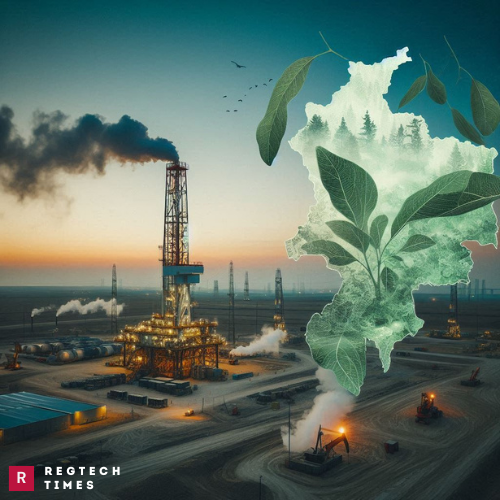On Tuesday, Colombia’s president made a strong and unexpected decision. He ordered Ecopetrol, the country’s government-controlled oil company, to cancel a major deal with a U.S.-owned company, Occidental Petroleum (Oxy). This agreement was supposed to produce about 90,000 barrels of oil daily in the Permian Basin, a large oil-producing region in Texas and New Mexico.
The reason for the cancellation? Environmental concerns. In a speech broadcast across Colombia, the president said he is against the use of fracking, a controversial method of extracting oil and gas from underground rock. He described fracking as dangerous to nature and harmful to humanity. “Fracking is the death of nature,” he said during a meeting with his Cabinet. He insisted that money invested in oil projects like this one should instead go toward developing clean energy solutions.
The deal, which had just been extended by Ecopetrol and Oxy, would have involved an investment of over $880 million to drill 91 oil wells. Ecopetrol’s projects in the Permian Basin have been a significant part of its operations, producing an average of 95,200 barrels of oil per day in the first nine months of 2024. This was about 12% of the company’s total oil production last year.
Boyd Farm LLC: Environmental Violations and Legal Consequences
What is Fracking, and Why Is It Controversial?
Fracking, short for hydraulic fracturing, is a method of extracting oil or gas trapped in rock deep beneath the Earth’s surface. It involves injecting water, chemicals, and sand at high pressure to crack open the rock and release the oil or gas. While this process can produce a lot of energy, environmental groups and scientists have raised serious concerns about its impacts.
One major concern is water pollution. The chemicals used in fracking can contaminate underground water sources, which people and animals rely on for drinking. Another issue is the risk of tremors or small earthquakes, which can happen when the rock shifts after being fractured. Fracking is also criticized for contributing to climate change, as it releases greenhouse gases like methane into the atmosphere.
Colombia itself does not allow fracking within its borders. However, Ecopetrol had been allowed to participate in fracking operations in other countries, like the U.S. The president’s recent decision marks the first time the government has taken steps to block such overseas projects.
Financial and Political Impact
The decision to cancel the deal has already caused ripples in Colombia and beyond. On Monday, Ecopetrol announced the extension of its partnership with Occidental Petroleum, and the company’s shares rose 2% on the New York Stock Exchange. But after the president’s order to scrap the deal, the stock prices fell slightly.
Ecopetrol is not just any oil company. It is partially owned by the Colombian government, which controls most of its decisions. However, it is also listed on the New York Stock Exchange, meaning that international investors have a stake in its operations. This makes the president’s decision particularly significant, as it involves balancing environmental concerns with economic interests.
Turkish Ship Owner Plead Guilty to Environmental Crimes, Fined $2 Million in New Orleans
Oil and gas production plays a crucial role in Colombia’s economy, but the president has repeatedly called for reducing the country’s dependence on fossil fuels. By canceling the Ecopetrol-Oxy deal, he is sending a strong message about prioritizing the environment over short-term profits.
This decision has sparked debate in Colombia. Environmentalists have praised the move, saying it aligns with global efforts to combat climate change and protect natural resources. On the other hand, critics argue that canceling such a large and profitable deal could harm Colombia’s economy, which relies heavily on oil exports.
A Landmark Moment in Environmental Policy
Ecopetrol’s projects in the Permian Basin have been highly productive, contributing significantly to the company’s overall oil output. However, the president’s recent announcement marks a turning point in how Colombia approaches oil production, particularly projects involving fracking.
For now, Ecopetrol has not issued a formal response to the president’s demand to cancel the deal. It remains to be seen how the company will handle the situation and what steps it will take next. However, the president’s message is clear: Colombia is taking a hard stance against fracking, even if it means turning down big money deals.


